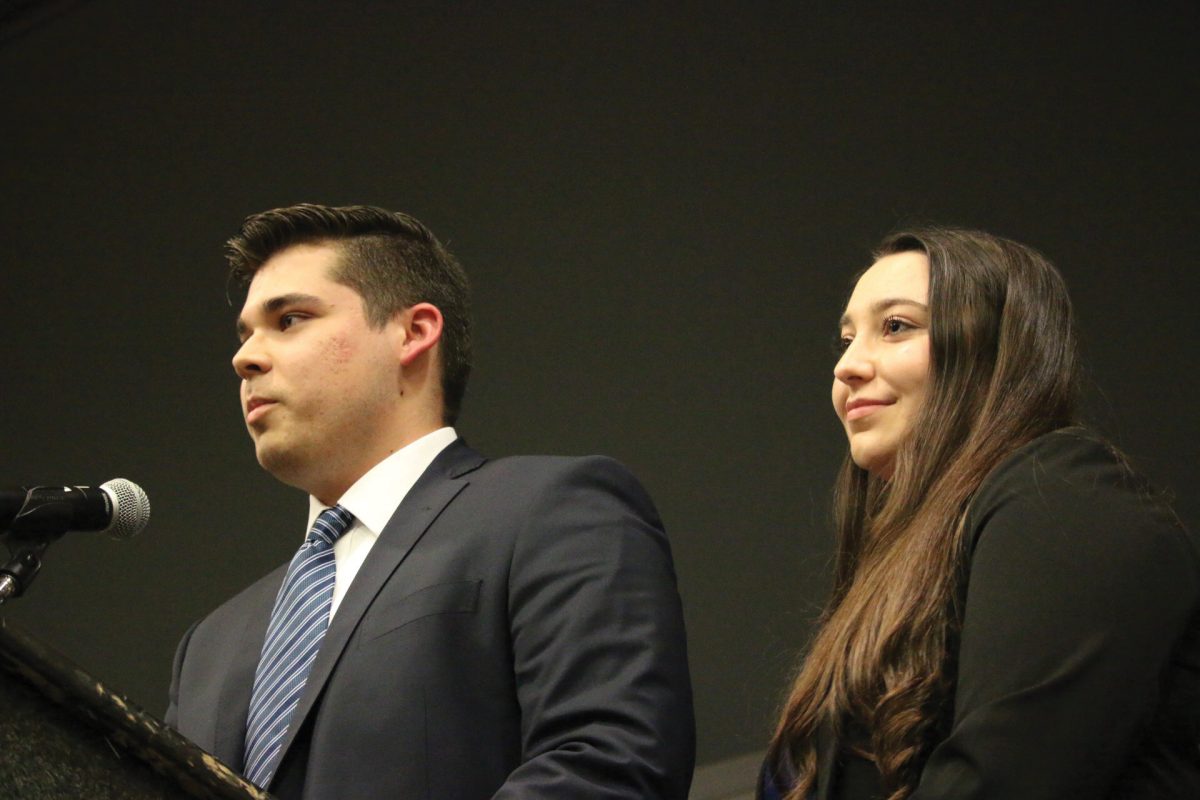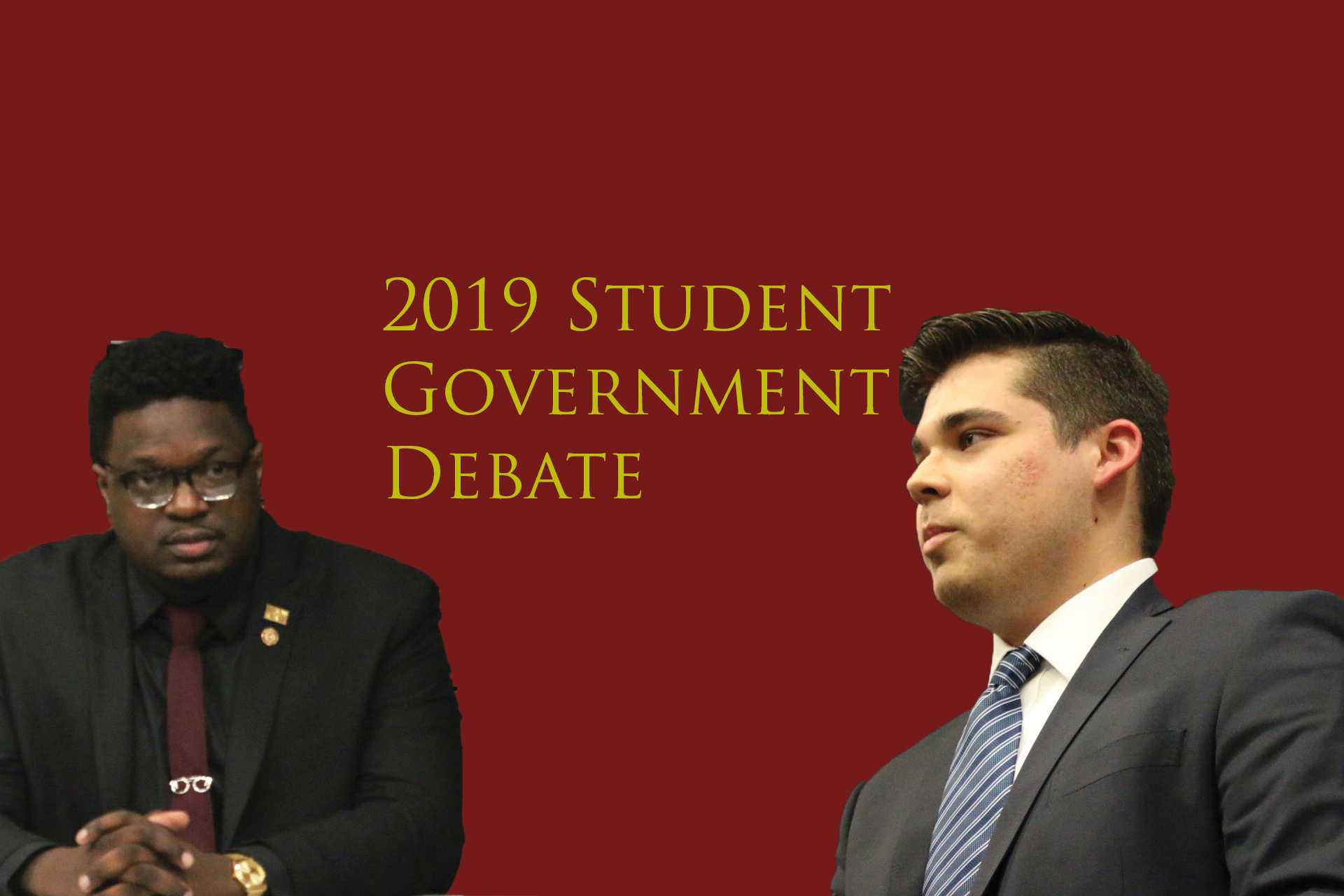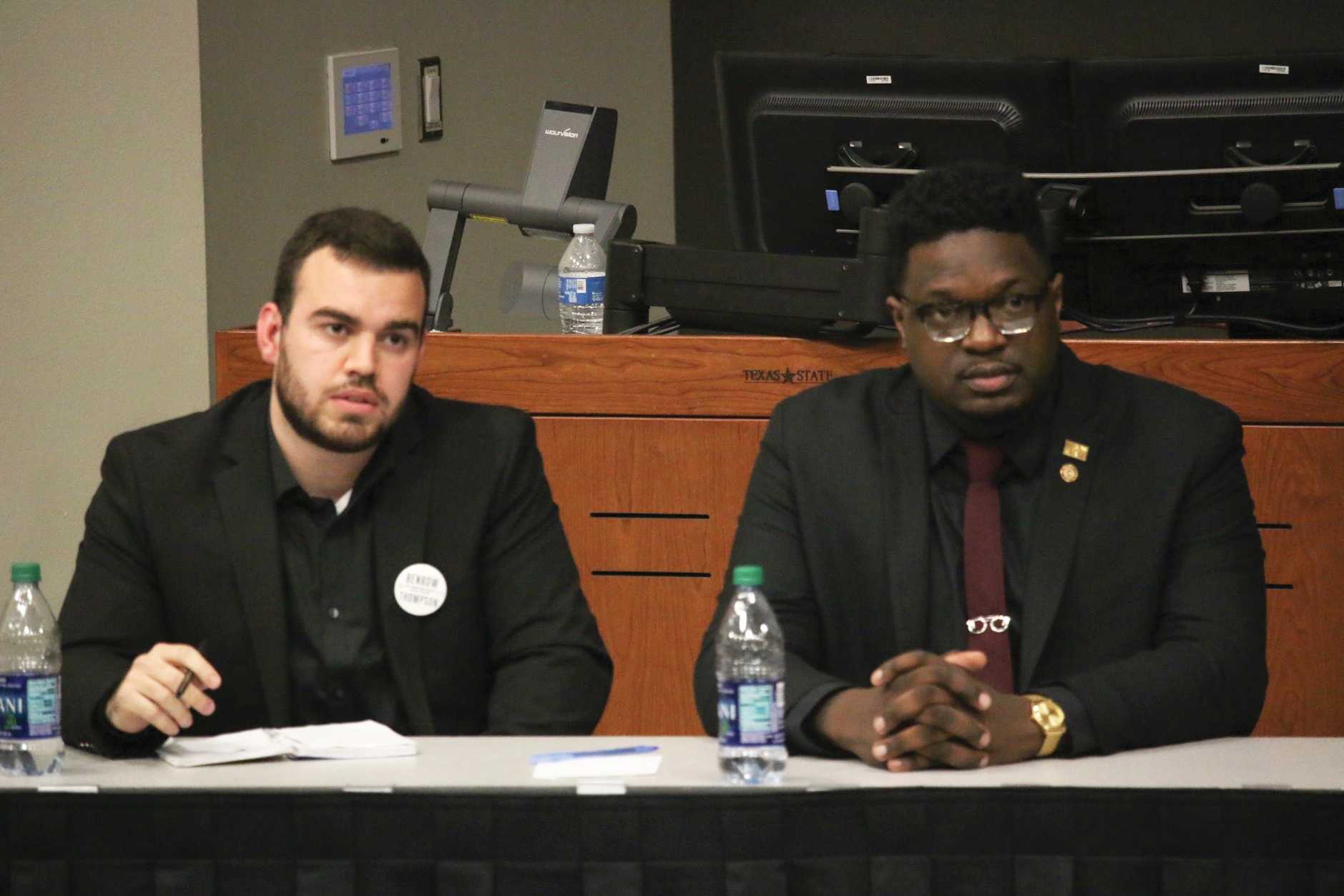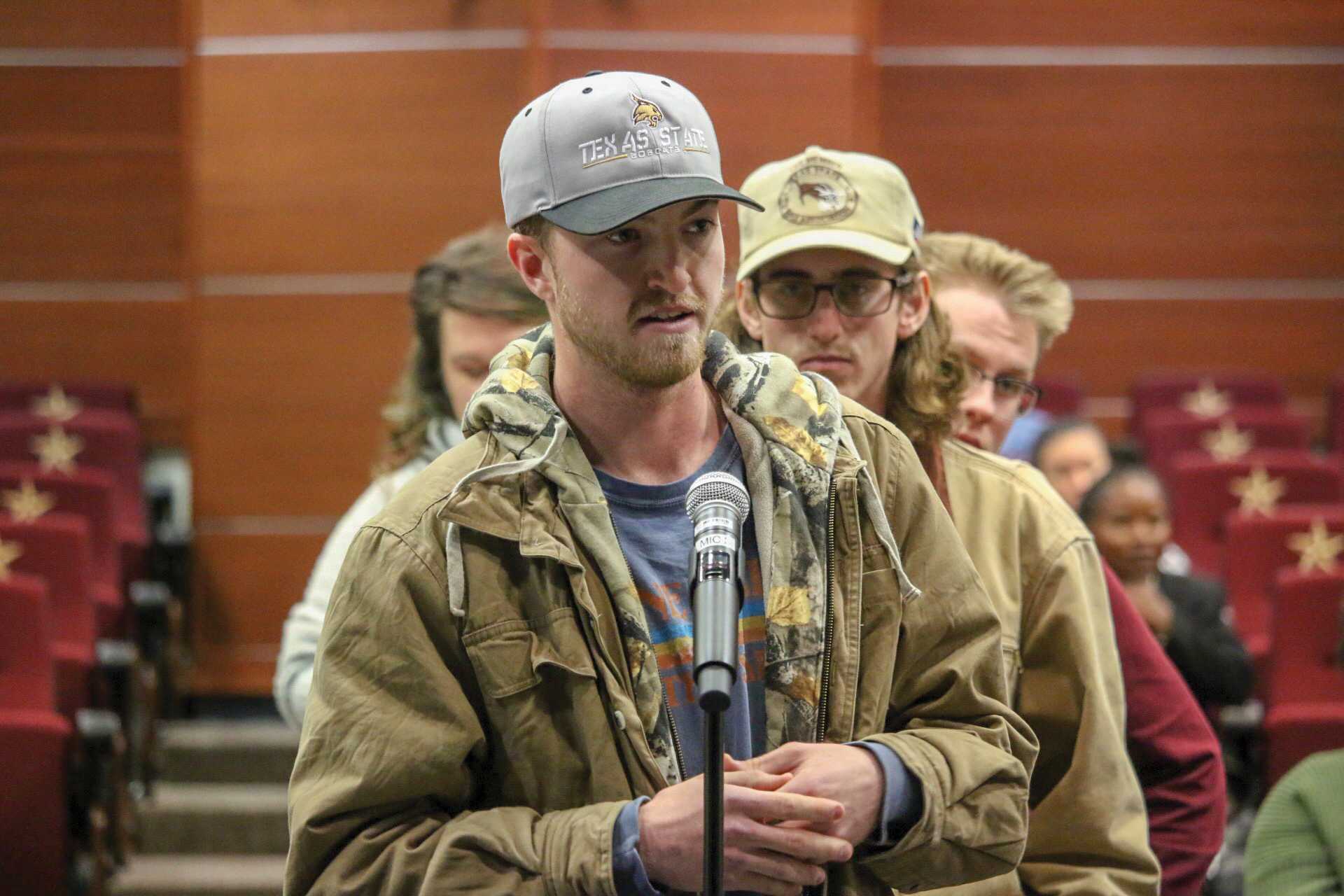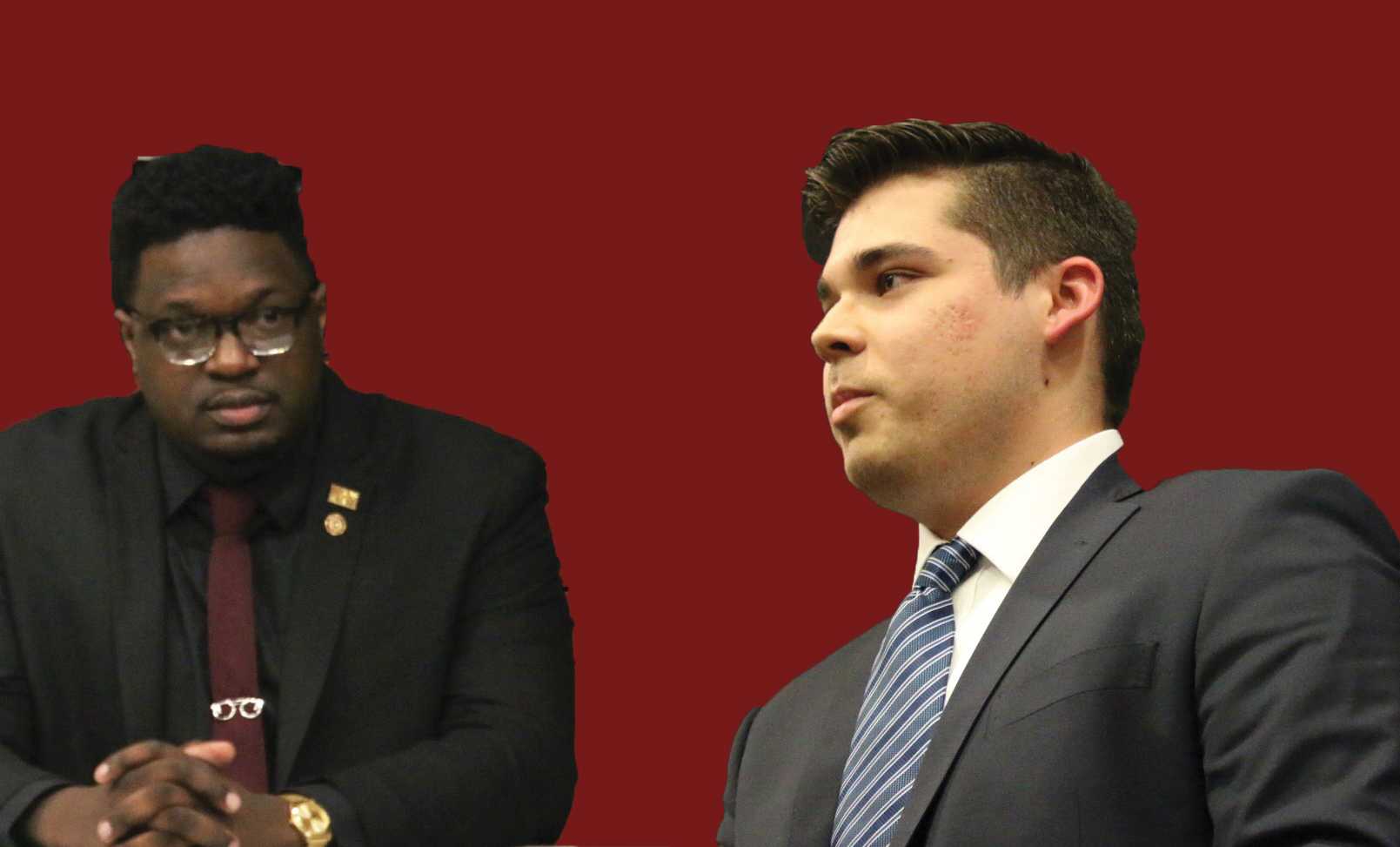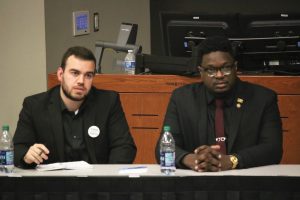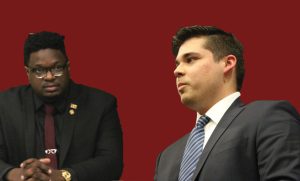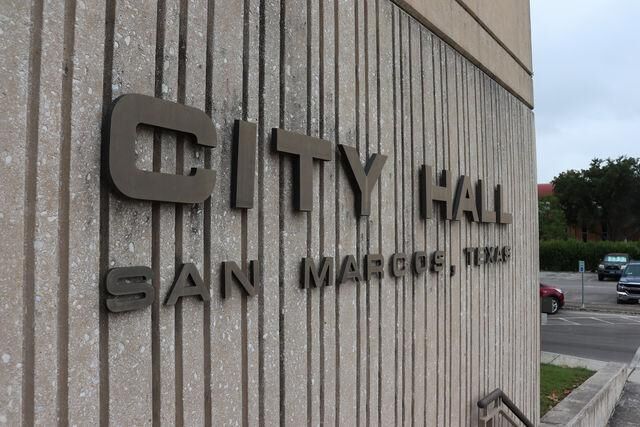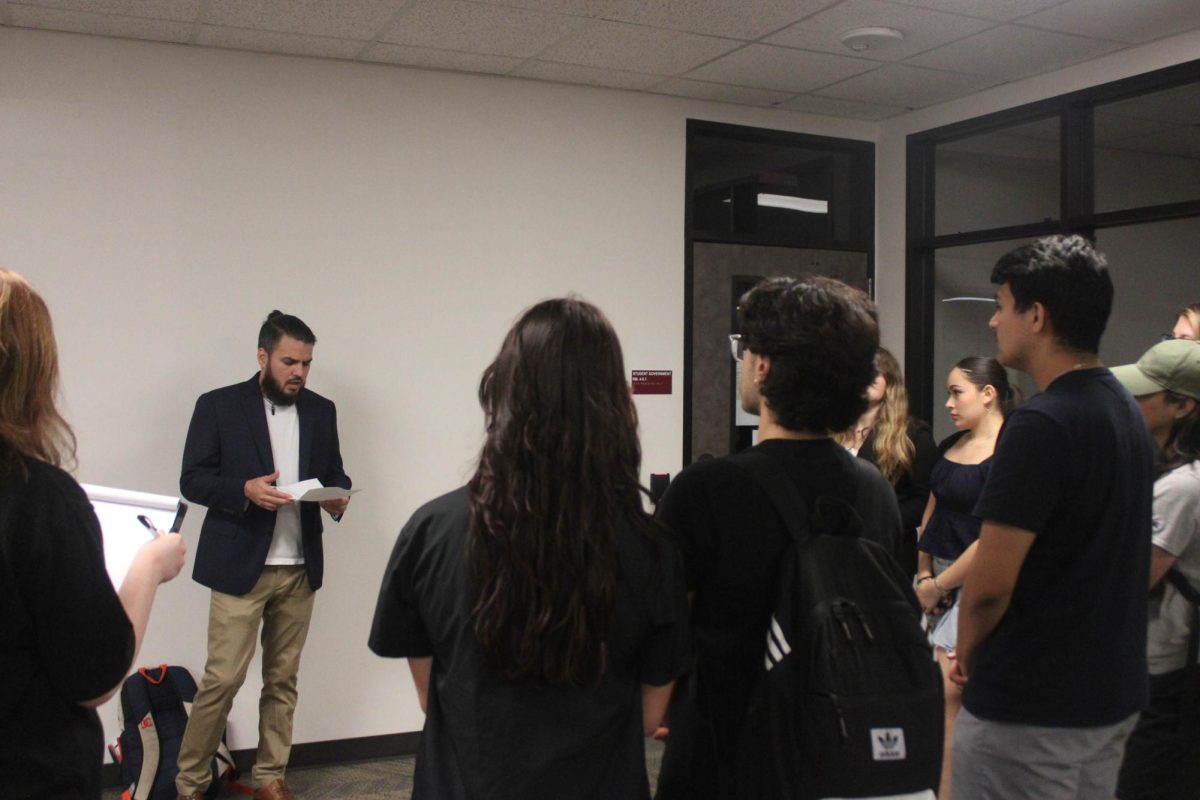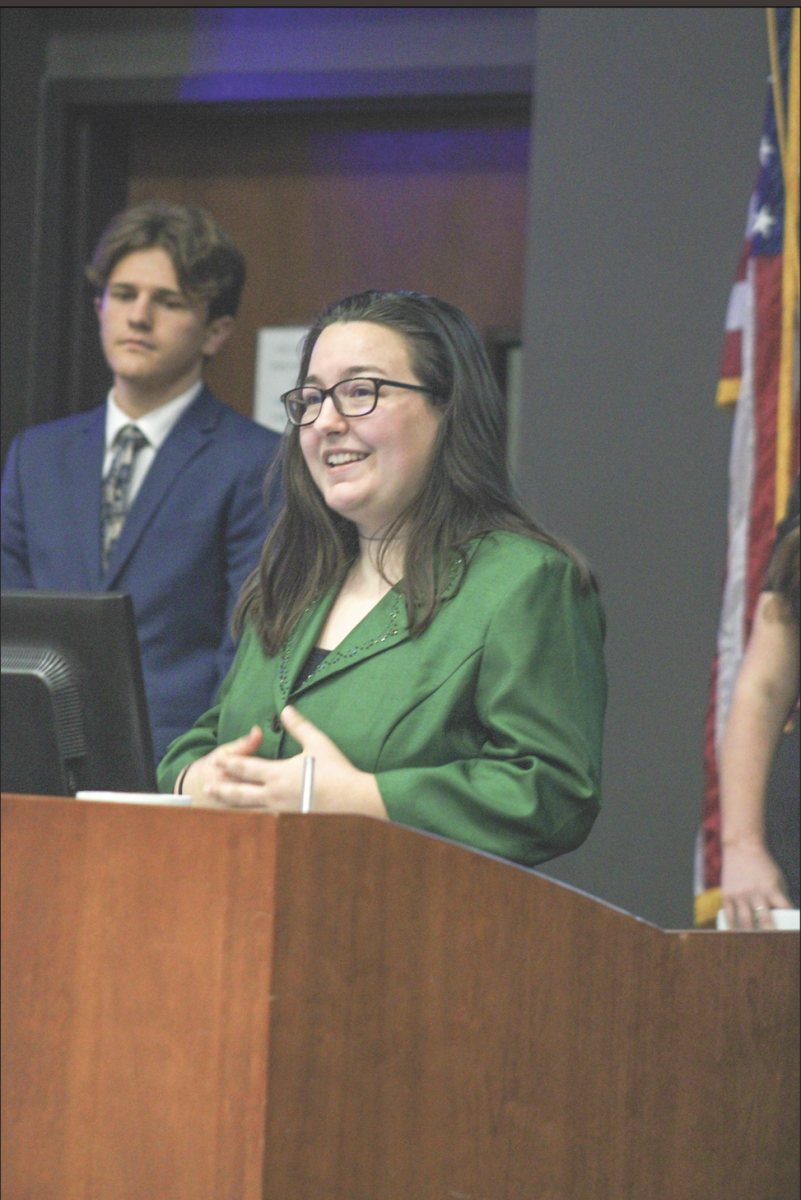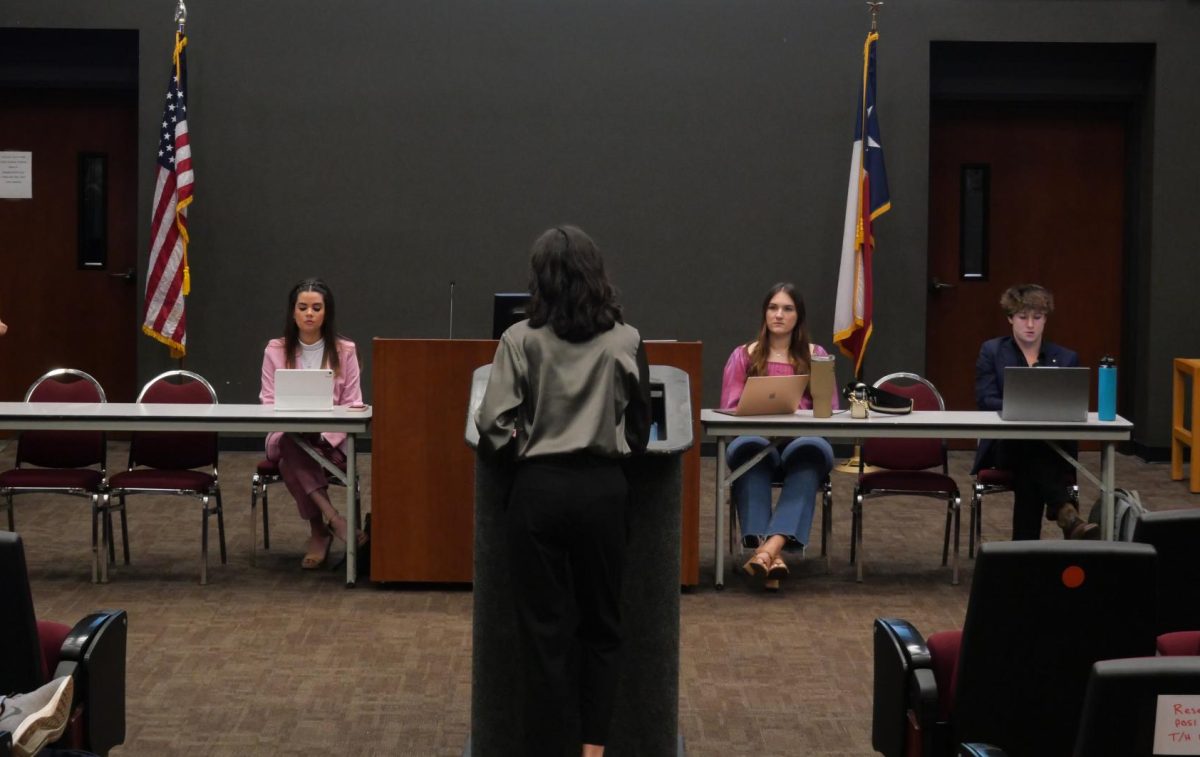Diversity and inclusion, government transparency and Fraternity and Sorority Life were hot topics during the Feb. 11 Student Government debate, which gave presidential and vice-presidential candidates a chance to argue their platforms and win students over before voting starts.
The debate, hosted by The University Star and KTSW, gave candidates an opportunity to voice their platforms, debate opponents and take questions from the audience in the LBJ Teaching Theater. The campaigns consist of current Sens. Alex Plunkett and Kelly Torpey for president and vice president on one ticket and Corey Benbow and Sen. Tucker Thompson for president and vice president on another.
Diversity and inclusion have been relevant for Student Government candidates in recent years, including the current campaigns, in an effort to represent and engage with all of the Texas State community.
“We’re not talking about tokenism; we’re not talking about checking off boxes,” Benbow said after being asked about the difference between diversity and inclusion. This difference was something Cassidy Wright, a social work senior and president of the Underrepresented Student Advisory Council, believe the Plunkett-Torpey campaign didn’t address well during the audience’s question-and-answer period.
“I think the Plunkett-Torpey campaign has a little more personal and professional development to do before they become any type of president or vice president,” Wright said. “I think right now is not the time.”
Providing more transparency in Student Government has become a necessity for many students following the campaign controversy and eventual resignation of former Student Government President Brooklyn Boreing, who allegedly received an illegal $3,000 in campaign donations from conservative political action committee Turning Point USA. Each 2019-20 candidate voted or said they would have voted to open an investigation into Boreing’s campaign.
“She didn’t defend herself and gave off the possibility she might have been guilty,” Benbow said. Thompson said he voted yes and would again. Similarly, both Plunkett and Torpey voted as senators to open an investigation.
The relationship between Fraternity and Sorority Life, formerly known as Greek Affairs, and the rest of Texas State has been rocky since the 2017 death of fraternity student Matthew Ellis and the suspension of all fraternities and sororities by University President Denise Trauth.
During the debate, Plunkett said he believes the university needs to learn from those events yet believes the policies implemented after the suspension were not totally correct. Plunkett also believes many of the regulations should not have been pulled back so soon.
“The regulations they put in for safety were perfect, but it hindered Fraternity and Sorority Life for recruitment,” Plunkett said. “Recruitment – leave that to Greek life.”
Thompson claimed four pieces of legislation-writing experience over topics including bringing fraternities and sororities together and an anti-racism piece after a white nationalist banner was clandestinely posted in 2017. No legislation authored by Plunkett or Torpey has passed through the Senate during their time in office, this being something Plunkett ascribed to the learning curve of joining Student Government.
Additionally, Plunkett said it’s unacceptable for any bill to be lost in the legislative process. This was a major issue when senators passed legislation but never received approvals or vetos from former Student Government President Connor Clegg.
Student Government elections for president, vice president and the Senate will be held online Feb. 18 through 21 for students with an active NetID.
Categories:
Presidential candidates present platforms during Student Government debate
February 19, 2019
Presidential and vice presidential candidates Alex Plunkett and Kelly Torpey answer a student’s question at the presidential debate Feb.11 in the LBJ Teaching Theater. Photo by Jaden Edison
0
Donate to The University Star
Your donation will support the student journalists of Texas State University. Your contribution will allow us to purchase equipment and cover our annual website hosting costs.
More to Discover



